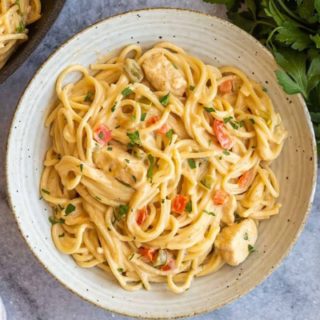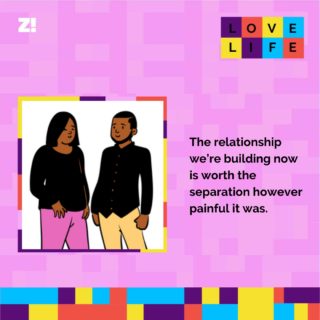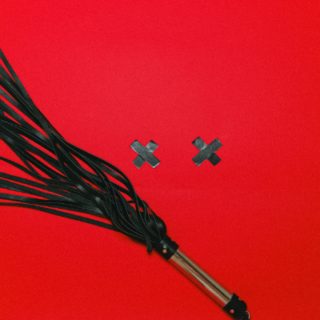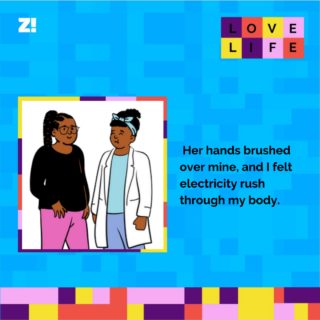If you were on Twitter last week, breastfeeding was a trending topic, thanks to this video. It was an important conversation that I intended to continue, so I asked African women to share their breastfeeding experiences with me. Here’s what nine of them had to say.
Thelma, 28, Nigerian
I had a traumatic labour and delivery, so breastfeeding was not even at the top of my mind. When it was time to teach me how to get him to latch on, it wasn’t a problem. My son was so good at it they were cheering me on at the hospital. I didn’t have any milk so my poor baby was enjoying air. When I spoke to the midwife and nurse about it, they told me that I had lost a lot of blood and my iron level was low and had affected my milk supply. They told me not to worry that they have enough formula to last my hospital stay.
While at home, I still couldn’t produce a lot of milk until 5-7 days later. My baby was on formula but I tried to get him to latch for 30 minutes every day. I wasn’t in a lot of pain but my nipples were cracked and disgusting. I ate different foods that were meant to help but I just didn’t feel like I had enough milk. My nurses were never worried as long as he was eating something. My child’s diet was 70% formula and 30% breast milk. Although I felt like I wasn’t doing enough, I was told everyone is different and I should not feel like a bad mother. That was reassuring for me.
Megan Ross, 32, South African
I breastfed my son for a long time — almost four years. It was something I was happy to do as long as my son was happy with it. We weaned at a time that was emotionally good for him, and when I knew he felt ready to let go.
I initially aimed to breastfeed for six months and then a year, but as time passed, it felt like the most natural and normal thing to do. I’ve travelled a lot for work so pumping and expressing was a huge part of my breastfeeding journey. I was pumping every two and a half hours on a flight from Frankfurt to Iceland and then in Iceland while I was away from my six-month-old for a week. It was intense but I didn’t want him to run out of milk and I was also trying to prevent mastitis. It was a lot of work and quite stressful but I don’t regret one minute of it.
Tomi, 34, Nigerian
I have two kids — a three-year-old and a nine-month-old. I breastfed my oldest child till she was two and a half. I stopped because she always wanted to suck at the same time as the younger one and never wanted to wait. I initially planned to breastfeed her till she was three.
I’ve been lucky in my journey. My husband and I attended breastfeeding classes before the kids were born. We learned proper positioning, potential problems and potential solutions. I was able to put them on my breast almost immediately after they were born. For both births, my breast milk came in three days after delivery.
I remember being extremely sore when I was pregnant with my second child and still breastfeeding my first child. I had to remind myself that she didn’t ask me for a sibling. The pain eventually faded.
I tried pumping out milk when my first child was about seven months old so my husband could feed her at night, but after all the pumping stress, this child would just take a sip and reject it. She nursed to sleep till she was about 21 months, and we mutually agreed to stop. The plan is to try for three years with my second baby. Breast milk is pretty much free, and formula is expensive plus the stress of boiling water and waiting for it to cool before feeding them. LOL. I just open my breast and throw it in their mouth. Hungry, take breast. Tired, take breast. Sad, take breast. Injured, take breast. It’s an amazing solution to everything.
Bimbola, 28, Nigeria
I did a lot of research on breastfeeding when I was pregnant with my first baby. I had my son in a general hospital where exclusive breastfeeding was a must. I decided I wanted to breastfeed exclusively for six months. It was easy for the first few weeks but as the baby grew older, I noticed I was always hungry and cranky after breastfeeding. I also battled with postpartum depression
My baby was clingy as well. He didn’t allow anyone else to carry him. I couldn’t go out for too long. I didn’t even bother pumping breast milk because it was a lot of work. Funny enough, I made it through the six months breastfeeding him. I was 23, and I did not know how to fight back on societal pressures of what a ‘good mother’ should be. I’m older and more experienced now, so since I wasn’t lactating after I gave birth to my second child, I just gave him formula. That’s how I fed him, alongside breast milk. I weaned him around January this year. It was a win-win for both of us. I’m happy these conversations are happening. A new mum may see this and know she’s doing her best whether she’s bottle-feeding or breastfeeding.
Funmi, 55, Nigerian
I didn’t know how to breastfeed when I had my first child. I was living with my husband’s family and my mother-in-law and sister-in-law refused to help because they didn’t like me. My baby survived on water for a week till my mother came on the day of my daughter’s naming ceremony. I wasn’t even eating well before she arrived and my husband wasn’t supportive either. My mother taught me to lactate and I eventually got used to it.
Sandra Solomon, 32, Nigerian
My breastfeeding journey wasn’t easy. On day one, my little girl rejected breast milk. I tried to force her but she wouldn’t swallow. I tried expressing the breast milk into a bottle, she didn’t take it either. I eventually gave up and started giving her formula. Sometimes, I would try feeding her with breast milk in a bottle but she knows the difference — she would spit it out immediately. I got shamed for bottle-feeding her. Most people didn’t understand how hard I tried.
Fatima, 30, Nigerian
When I gave birth, my breastmilk didn’t flow because I was about six weeks early. I’d pump for two hours only to get like 30mls. This led to increased anxiety and postpartum depression so I stopped trying for a while. I had three different pumps, and I was like a maniac trying to get milk out. I bought lactation cookies, tea and granola. Those didn’t work. I drank fenugreek oil and licked the powder. I drank water like a drum. It was when I started drinking pawpaw leaf juice that my mother-in-law told me to give it a rest. If milk isn’t flowing, it’s not by force. When I relaxed, the milk started flowing. It never flowed in excess and couldn’t have been enough to breastfeed for six months but we dey okay. My body was always aching because breastfeeding was taking a toll on me so I had to wean earlier than planned.
Nnenna, 25, Nigerian
When I gave birth, I couldn’t breastfeed for three days because I had a Caesarean session. When I got home and started breastfeeding, it was the most excruciating pain ever. My baby’s mouth was like a vacuum cleaner, ready to suck my soul out through my nipple.
Feeding him every hour was so annoying because I was healing from the operation but my son didn’t care — all he wanted to do was suck, suck and suck. I always felt dizzy no matter how much I ate. I stopped breastfeeding him when he was 16 months because o ti sumi. I would have stopped earlier but it was convenient for me to shut him up with my breasts whenever he started crying.
Right now, he is 18 months and occasionally reaches for my breasts but all the milk has dried up. There’s also a pain that comes from stopping your child from breastfeeding and it’s worse than starting but that’s a story for another day.
Mido, 27, Botswana
Breastfeeding was hard at first. My milk came out on the second day after delivery. I was sad at the hospital because other new moms were breastfeeding properly and I had to massage my breasts for milk to come out. It took a few hours and I was also expressing into her bottle lid so she could at least have something to feed on. I didn’t like how painful the process was but I got the hang of it eventually, and it was a beautiful experience for me.
For more women-centred content, click here




